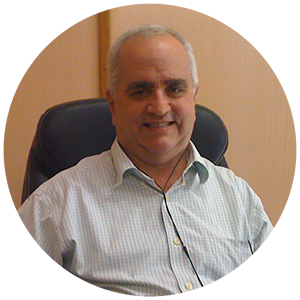James Flood has been an engineer since 1976 and only recently has contracted the most severe tonal tinnitus. In February 2011 he was exposed to a very loud electrical generator at a waste water plant and thereafter suffered with a very loud, high pitched tone in his head. The constant sound became unbearable at times and “almost got me killed in a car accident” when the tinnitus abruptly changed volume whilst James was driving.
He tried to manage the tinnitus so that it wouldn’t affect his work performance. He has the responsibility, as resident Engineer, for two waste water treatment plants in Doha, the capital city of Qatar and plays a key role in keeping the plants operating.
He found he had no peace or quiet in his life, “it never goes away, I found I never have any quiet.” As the tinnitus was so bad and very stressful he decided to get expert help. An ENT Consultant examined him and was checked using an MRI scanner to rule out the possibility of an auditory nerve tumour. Fortunately this was not the case. He was recommended to try relaxation therapy but this provided no respite, however listening to music did seem to help a little before trying to sleep.
“When nothing else worked, my wife went to a seminar on tinnitus and then looked up The Tinnitus Clinic website.”
The tinnitus continued to have a major impact on James’ quality of life and so “when nothing else worked, my wife went to a seminar on tinnitus and then looked up The Tinnitus Clinic website”. James made an appointment to visit the Clinic in Harley Street and was assessed by the Principal Scientific Audiologist, Mark Williams. The tests showed that James’ tinnitus was able to be treated by Acoustic CR Neuromodulation. The pitch of the tinnitus was measured and the Neurostimulator was programmed and fitted at one session.
Being an Engineer, James expressed a desire to have a Bluetooth version of the Neurostimulator so he wouldn’t be bothered by the ear phone wires. “Other than that it is OK and well worth the inconvenience”. He wears the device from the time he gets up for up to 4 to 6 hours each day. When asked “how long did it take before you experienced actual improvements in your tinnitus”, he replied “nearly immediately with a lowering of frequency and a diffusion of the tone”.
Mark Williams explained that “the lowering of pitch and the diffusion effects are common after using the Neurostimulator, however not everyone enjoys as quick a response like James. The improvement in the tinnitus is maintained even when the device is not used and this is the main difference to masking or residual inhibition treatments.” The improvements in James’ tinnitus means that “my stress level is lower, so life is better as a result and no more accidents!”
“My stress level is lower, so life is better as a result!”




